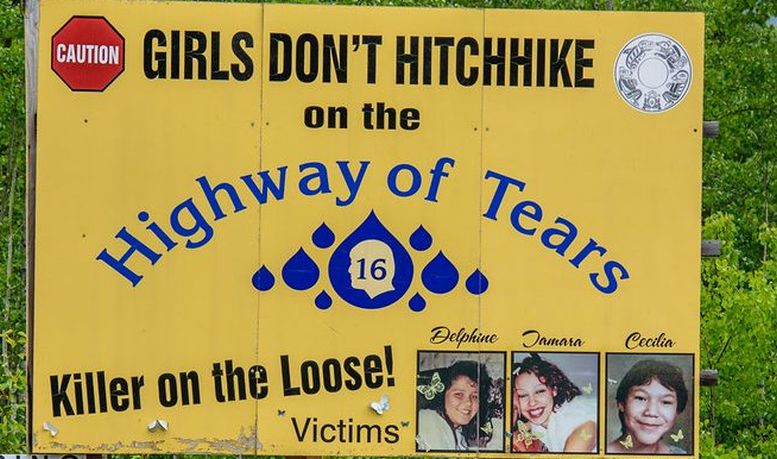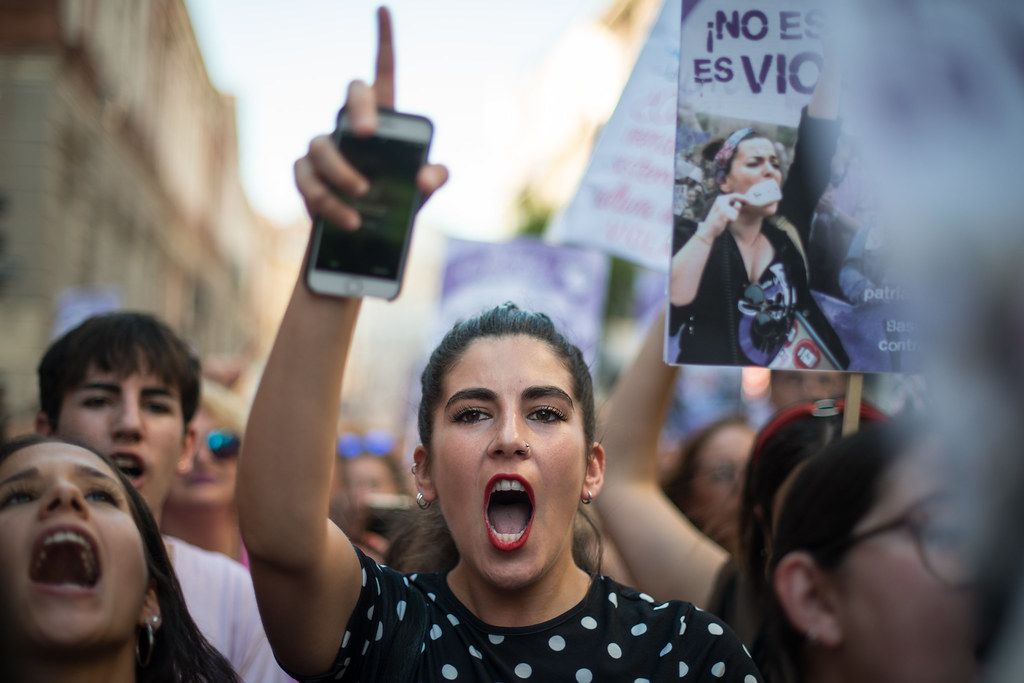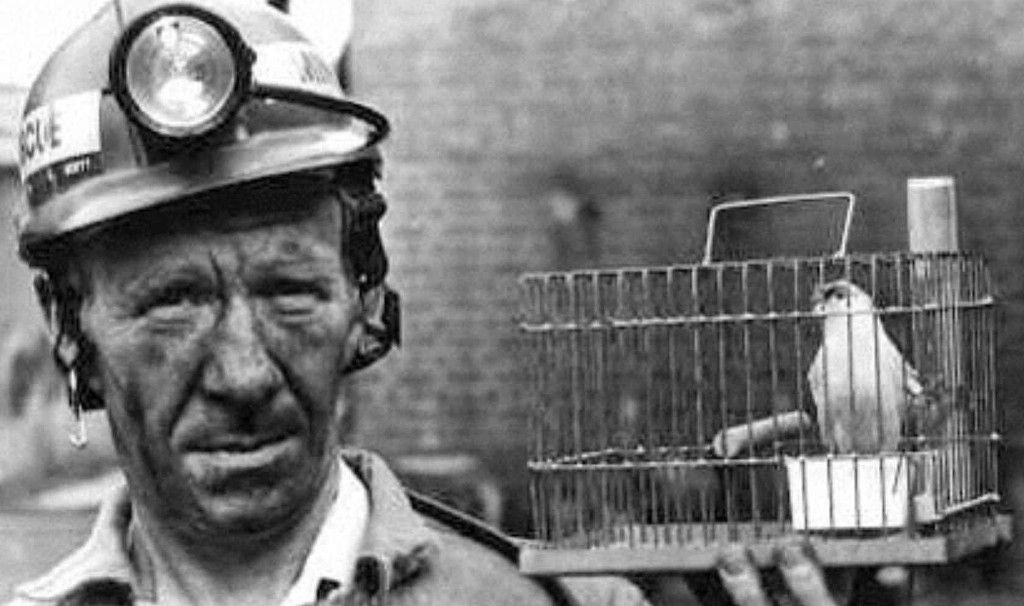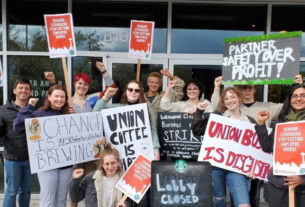Envision a night out with friends. It’s after dark, you may choose to consume substances. You dance and meet new people, free of unwanted touching, comments or pressure to do anything you don’t consent to. Then you return home safely and affordably via walking, public transit, taxi or rideshare.
This is an extremely rare experience for working-class women and LGBTQ+ people worldwide. What should be a carefree, enjoyable experience is darkened by the high likelihood of being harmed. A Canadian Survey of Safety in Public and Private Spaces (2018) found one in three women experienced unwanted sexual behaviour in public.
Robust, safe, affordable public transit systems are declining in major cities and access to public transportation is nearly non-existent in smaller and rural communities. This means late-night transportation options are taxis, expensive rideshare platforms or hitchhiking. Social media is full of women’s experiences being sexually harassed and/or unwillingly confined within drivers’ vehicles and sharing tips on how to stay safe when traveling alone with a male driver. Indigenous women, girls and two-spirit people are disproportionately impacted. The Missing and Murdered Indigenous Women and Girls Inquiry demanded all governments “ensure that adequate plans and funding are put into place for safe and affordable transit and transportation services and infrastructure for Indigenous women, girls, and 2SLGBTQQIA people living in remote or rural communities.”
Hospitality is a hotbed of workplace sexual harassment. If you’ve worked in any customer service position, you’ve most likely heard the motto, “the customer is always right,” leaving many workers, mostly women (82 percent of food and beverage servers in BC are women), vulnerable to the unwanted comments and physical contact of customers with little to no intervention of management so as not to risk sales or “a scene” in front of other customers. A Western University and Canadian Labour Congress report found 44 percent of workers experienced at least one workplace behaviour or practice of sexual harassment and violence in the last two years. This type of violent misogyny is encouraged through figures like Andrew Tate online. Despite this harm, corporate social media is more than willing to profit from toxic content.
Whether it be social media, nightlife, transportation or infrastructure, there isn’t an area of society under capitalism that doesn’t negatively affect the safety of women, disproportionately impacting working-class women, women of colour and the LGBTQ+ community.
The world is shaped by the profit motive of the capitalist system. Society is built to satisfy the bosses’ bottom lines, irrespective of safety, working conditions, accessibility and meaningful enjoyment.
The increasing privatization of energy in South Africa points to the devastating effects on women’s safety. During the darkness of loadshedding (planned blackouts), women have to walk home through dark streets after work or with their children from after school activities.
Well-lit streets and accessible transit are just beginning steps to improve safety for women and LGBTQ+ people, but these alone won’t end misogyny, sexism and transphobia.
The contradictions of capitalism are sharpening: the cost-of-living crisis worsens, polarization deepens, and the anti-feminist backlash is growing. The ruling class uses divide and rule tactics to control and crush resistance. To an extent, this has been successful, and layers of the working class fall prey to simplistic, dangerous answers of the far right.
As socialists, we must point to the source of women’s and LGBTQ+ people’s oppression: capitalism.
A program of demands aimed at addressing the real, pressing needs of working-class women and LGBTQ+ people include safer streets and bars, unions that protect workers from predatory behaviour and media that doesn’t profit off the spread of virulent ideology. Only a mass movement of the multi-gender, multi-racial working class can bring about these changes.




